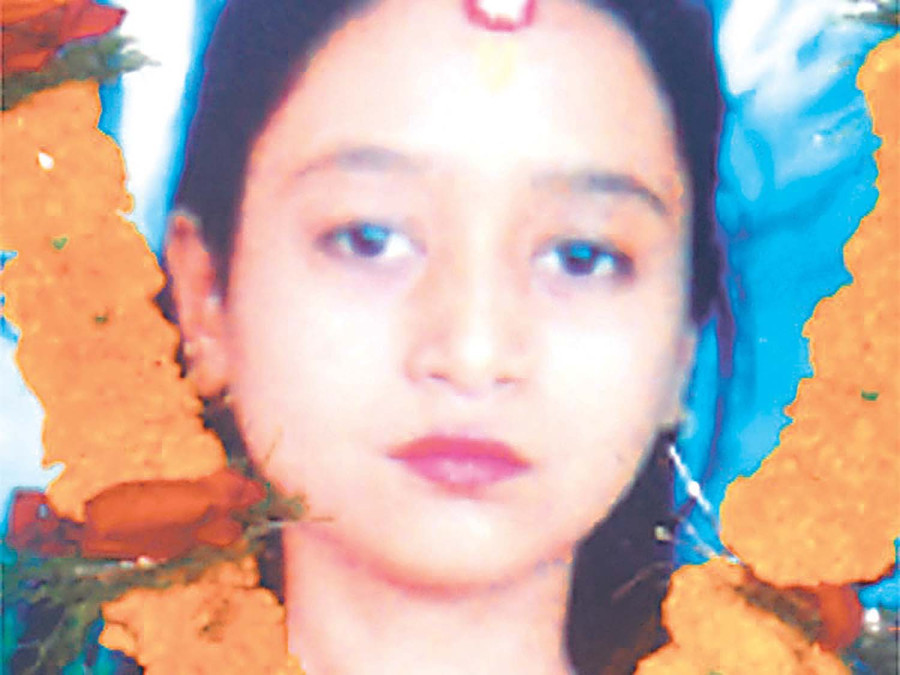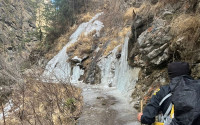National
Devi Sunar asks UN to halt support to Army until daughter gets justice
Maina Sunar was tortured to death by Army soldiers 21 years ago over alleged Maoist ties.
Binod Ghimire
Devi Sunar, mother of Maina, who was raped and murdered by security forces during the Maoists insurgency, has written to the United Nations requesting it to halt support to Birendra Peacekeeping Training Centre in Panchkhal, Kavre unless justice to her daughter is delivered.
Writing to Jean-Pierre Lacroix, United Nations under-secretary-general for Peacekeeping Operations United Nations, on the 21st anniversary of Maina’s death, Sunar has brought to his notice how the Army officials convicted of the heinous crime have not yet been arrested. In 2017, the Kavre district court convicted Colonel Bobby Khatri, Captain Amrit Pun and Sunil Adhikari in connection with the murder after torture case and sentenced them to life imprisonment.
On February 17, 2004, a group of Army personnel had detained Maina, then 15, from her home in Kharelthok for her alleged links to then rebel Maoists. She was murdered after torture in the peacekeeping training centre.
“I heard that the Nepal Army continues to lobby the United Nations to support upgrading BPOTC into a regional training centre for Asia and the Pacific region,” Sunar’s letter reads. “I am writing this letter to plead with you to make sure that this does not happen unless clear conditions are met that guarantee truth, justice, reparations and guarantees of non-recurrence in respect of the murder of my daughter. I am sure you are aware my daughter is not the only victim, there are numerous other allegations, like that of my daughter, involving BPOTC.”
She has also urged the Lacroix office to make every effort to ensure justice and accountability reagarding her daughter’s case and many other cases that involved grave human rights violations at the hands of the Army.
The national defence force refused to take action against the Army officials as per the district court ruling, claiming they were convicted in 2005 by the military tribunal. The tribunal ruled that Maina’s death was accidental and charged the three Army men involved in the case with minor offences.
In her letter, Sunar recalled that under international human rights law, crimes against civilians could not be handled by military courts, and the military investigation did not follow the right interrogation techniques and proper proceedings of the case. “I hope you agree that these officials should serve the sentence announced by the district court,” the letter reads.
Refusing to act per the district court ruling, the Army filed a petition in the Supreme Court of Nepal in September 2017 seeking to vacate it. The top court is yet to pass the verdict on the petition.
Sunar has claimed the “legal manoeuvring” was an attempt to intimidate her into relinquishing her pursuit of justice for her daughter.
Through the letter, she has asked the UN to properly vet Nepal’s peacekeeping forces, which remains a critical measure to push for accountability.
“I want to press upon you that the transitional justice process in Nepal remains paralysed, nearly 20 years since the end of the armed conflict,” the letter reads. “Allowing the Army to continue training peacekeepers at the centre without meaningful progress on this case and the broader transitional justice process is simply a scandal.”




 9.56°C Kathmandu
9.56°C Kathmandu














